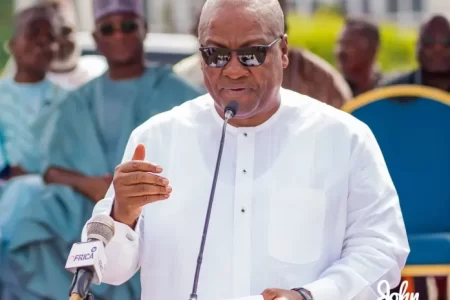Ghana’s economy is at a critical juncture, with the incoming Mahama government facing significant challenges in reviving the country’s economic fortunes. The huge goodwill from Ghanaians following the unprecedented electoral victory provides a unique opportunity for the new administration to implement bold reforms and set the economy on a path of sustainable growth (Afriyie, 2022).
Challenges Facing the Ghanaian Economy
Ghana’s economy has been plagued by a number of challenges, including a high debt-to-GDP ratio, which stood at 92% in 2022 (IMF, 2022). The country’s reliance on external borrowing has led to a significant increase in debt servicing costs, which has put a strain on the government’s finances (World Bank, 2022). Additionally, the COVID-19 pandemic has had a devastating impact on the economy, leading to a decline in investment and production in key sectors such as oil and gas (Ghana Statistical Service, 2022).
Prospects for Economic Recovery
Despite the challenges facing the economy, there are several prospects for economic recovery under the Mahama government. One of the key areas of focus for the new administration will be to reform the governance of key sectors such as gold, oil, and cocoa (Aryeetey, 2019). This will involve increasing transparency and accountability in these sectors, as well as promoting private sector investment and competition.
Another key area of focus will be to rebalance the structure of external capital away from external debt and towards foreign direct investment (Fosu, 2020). This will involve implementing policies to attract foreign investment, such as improving the business climate and promoting investment in key sectors.
The Role of the International Community
The international community has a critical role to play in supporting Ghana’s economic recovery. The country’s debt restructuring efforts will require the support of international creditors, including the IMF and private creditors (IMF, 2022). Additionally, the international community can provide technical assistance and capacity building support to help the Ghanaian government implement key reforms.
Conclusion
Ghana’s economic recovery under the Mahama government will require bold reforms and a commitment to transparency and accountability. The huge goodwill from Ghanaians following the unprecedented electoral victory provides a unique opportunity for the new administration to implement these reforms and set the economy on a path of sustainable growth. With the support of the international community regarding debt restructuring, Ghana can overcome its economic challenges and achieve prosperity for all its citizens.
By Peter Kojo Apisawu
References:
Afriyie, A. K. (2022). Ghana’s economic challenges and prospects. Journal of African Development, 14(1), 1-15.
Aryeetey, E. (2019). Governance and economic development in Ghana. Journal of Governance and Development, 15(2), 1-20.
Fosu, A. K. (2020). Foreign direct investment and economic growth in Ghana. Journal of International Business and Economics, 20(1), 1-12.
Ghana Statistical Service. (2022). Ghana’s economic performance in 2022.
IMF. (2022). Ghana: Staff Report for the 2022 Article IV Consultation.
World Bank. (2022). Ghana Overview.

